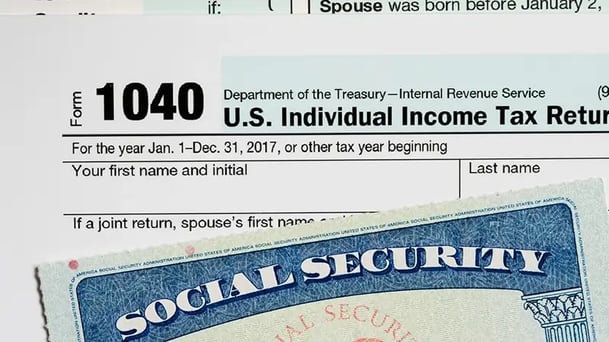
US Nonresident Alien Income Tax Return: Form 1040 NR
Form 1040-NR
If you are a foreign individual with income in the US, you should become familiar with IRS Form 1040-NR. This form is used to report income earned by nonresident aliens in the United States. The form must be filed by every nonresident alien who has income from sources within the United States, including income from wages, salaries, tips, dividends, interest, rents, royalties, pensions and annuities. If you are unable to file this form by the due date, you should request an extension of time to file to prevent penalties.
What is Form 1040-NR?
Form 1040-NR is the nonresident alien income tax return used by foreign individuals who earn income in the United State or who engage in business in the U.S. but who do not meet the criteria to be considered a resident alien for tax purposes. Form 1040-NR is the nonresident alien income tax return required to file with the Internal Revenue Service.
The IRS estimates that taxpayers spend an average of eight hours filling out this form. While instructions for this form are relatively simple, there are more than 30 pages of instructions that apply specifically to foreign individuals and there are various international tax laws that apply specifically to foreign individuals. For this reason, many foreign individuals seek professional guidance, so they can minimize their income tax liability.

What is the difference between a resident individual and a nonresident individual for tax purposes?
A resident alien for tax purposes is an individual who is a citizen of the United States or who is a legal permanent resident of the United States. A nonresident alien for tax purposes is an individual who is not a legal permanent resident of the United States and who meets neither the green card test nor the substance present test, see below.
Resident individuals are taxed on their worldwide income while nonresident aliens are only taxed on their income from sources within the United States. Resident individuals file Form 1040 US income tax return while nonresident individuals file Form 1040-NR.
How do you become a resident alien for tax purposes?

If you are not a U.S. citizen, you are considered a resident alien for taxes. However, if you are not a US citizen but you meet one of the following two tests, you are considered a resident alien for tax purposes:
-
Green card test: You are a lawful permanent resident of the United States, at any time, if you have been given the privilege, according to the immigration laws, of residing permanently in the United States as an immigrant. You generally have this status if the U.S. Citizenship and Immigration Services (USCIS) issued you a Permanent Resident Card, Form I-551, also known as a "green card test." If you meet the green card test at any time during the calendar year, but do not meet the substantial presence test for that year, your residency starting date is the first day on which you are present in the United States as a lawful permanent resident.
-
The substantial presence test: You will be considered a United States resident for tax purposes if you meet the substantial presence test for the calendar year. To meet this test, you must be physically present in the United States (U.S.) on at least:
-
31 days during the current year, and
-
183 days during the 3-year period that includes the current year and the 2 years immediately before that, counting:
-
All the days you were present in the current year, and
-
1/3 (one-third) of the days you were present in the first year before the current year, and
-
1/6 (one-sixth) of the days you were present in the second year before the current year.
-
-
Tax Tips: You should check to see if the IRS has a treaty with your country. Residency status for treaty purposes is determined by the applicable treaty. If you are treated as a resident of a foreign country under your country tax treaty, and not treated as a resident of the United States under that treaty, you are treated as a nonresident alien in figuring your U.S. income tax.
Does a foreign person have to file US tax returns?

A foreign person or nonresident alien engaged in a US trade or business must file an income tax return even if the business is not generating any income. Also, foreigners with passive income without tax withholding must file US income tax returns. In addition, if the foreign person owes special US taxes such as taxes on qualified retirement plans or social security or Medicare taxes, he or she must file a US nonresident alien income tax return. There are many other circumstances when foreigners must file a US income tax return. A foreign person meets his income tax return filing obligations by filing Form 1040 NR.
Who must file a 1040-NR?
You must file Form 1040-NR if you are a nonresident alien for taxes and you have income from U.S. sources that is subject to tax. Yes, if you are a nonresident alien, you are required to file Form 1040-NR if:
-
You are considered to be engaged in a trade or business in the United States during the year, like having a business in the United States or
-
You are not engaged in a trade or business in the United States but you have U.S. income on which the tax liability was not satisfied by the withholding of tax, (interest income received from US payor other than a bank, dividends received from US corporations, rent and royalties from US properties) or
-
You owe any special taxes
You should consult with your tax advisor regarding your filing requirements because there are many other instances when you may have to file even if you are a nonresident alien.
Tax Tips: If you are not sure whether you have to file a US tax form 1040-NR nonresident alien income tax return or not, it is better to file the form as a protective measurement because the statute of limitation starts running from the day that you file the return, usually three years. If you don't file the return at all, the IRS has unlimited time to examine your return.
What is effectively connected income?
If a foreign person engages in a trade or business in the United States, all income from sources within the United States connected with the conduct of that trade or business is considered to be Effectively Connected Income (ECI). Effectively connected to US trade or business income includes personal services performed in the US, sales of personal properties, sale of real estate located in the US, scholarships, grants, prizes paid in the US for activities in the US and pension income related to U.S. services.
Foreign income taxed by the U.S.
You may be required to report some income from foreign sources on your U.S. return if the income is effectively connected with a U.S. trade or business. For this foreign income to be treated as effectively connected with a U.S. trade or business, you must have an office or other fixed place of business in the United States to which the income can be attributed.
What is the closer connection to foreign country?

Even though you would otherwise meet the substantial presence test, you can be treated as a nonresident alien if you are considered to have a closer connection to your country. In order to prove the closer connection, you have to:
-
Prove that you were present in the United States for fewer than 183 days during the tax year,
-
Establish that during the tax year you had a tax home in a foreign country, and
-
Establish that during the tax year you had a closer connection to your home country more than to the United States
Usually, you are not eligible for the closer connection exception if you have an application pending for adjustment of status to that of a lawful permanent resident or if you have applied, or have taken steps to apply, for lawful permanent residence. You must file a fully completed Form 8840 with the IRS to claim the closer connection exception. IRC 7701(b)(3)(B)
Who is exempted from filing Form 1040-NR?
You are not required to file Form 1040-NR if you meet any of the following criteria:
-
Your only income from U.S. sources is wages, salaries, tips, refunds of state and local income taxes, interest, dividends, business or farm profits, pensions, annuities, IRA distributions, unemployment compensation, or social security benefits; and
-
You elect to have tax withheld on this income by completing a W-4 form (or similar form) for your employer; and
-
Your employer withholds the proper amount of tax from your paychecks. Your withholding tax is the amount deducted from your earnings and sent to the Internal Revenue Service on your behalf. There are some circumstances where your income tax withholding satisfy your tax return obligations.
Are foreign government employees exempt from U.S. income tax?

Compensation of employees of foreign government are exempted from US income tax. Section 893 provides special rules for employees of international government and international organizations. Under this section of the international revenue code, compensation income is exempt from US income tax and the residency of the employee is irrelevant. It is important to notice that this exception does not apply to the employee's other sources of US income.
What is the difference between 1040 and 1040-NR?
The main difference between Form 1040 and Form 1040-NR is that nonresident aliens cannot claim certain deductions and credits that are available to resident aliens. In addition, Form 1040-NR is used to report income from U.S. sources only, while Form 1040 is used to report income from both U.S. and foreign sources. Form 1040 can be considered more complicated than Form 1040-NR. Depending on your resident status for income taxes, you will use one of these forms.
Tax Tips: Dual status at the end of the tax year determines whether you file Form 104o or Form 1040-NR. You should write "Dual status return" on top of the return.
When is Form 1040-NR due?
Form 1040-NR is generally due on the 15th day of the 4th month following the end of your tax year (April 15 for calendar year taxpayers).
Where to file your 1040-NR income tax?
You can electronically file (e-file) Form 1040-NR and if you e-file your return, there is no need to mail the form. However, if you have to mail the form to the government, see the current address provided by the IRS on their website. Usually, the 1040-NR forms and payments are mailed to: Internal Revenue Service, P.O. Box 1303, Charlotte, NC 28201-1303, U.S.A.
What information is required to file Form 1040-NR?

To complete Form 1040-NR, you will need information about your income and expenses. You will also need your Social Security number or Individual Taxpayer Identification Number (ITIN). If you don't have an ITIN, you can apply for one with the Internal Revenue Service.
-
Income. You will need to report all income you received from U.S. sources, including wages, salaries, tips, refunds of state and local income taxes, interest, dividends, business or farm profits, pensions, annuities, IRA distributions, unemployment compensation, and social security benefits.
-
Expenses. You will need to report any expenses you incurred in connection with your U.S. trade or business, such as the cost of goods sold, employee salaries and wages, rent, utilities, and supplies.
Tax Tips: a foreign person or nonresident alien filing Form 1040-NR cannot use the standard deduction nor claim itemized deductions. If it is beneficial to the foreign individual, he or she may want to make an election to be treated as a resident alien for tax purposes.
What to do if Form 1040-NR was not filed in past year returns?
If you did not file form 1040-NR for one or more previous years, you should file those returns as soon as possible. You may be subject to penalties and interest if you owe taxes and do not file a return. If you need help preparing your return, there are many resources available, including IRS Publication 519, U.S. Tax Guide for Aliens, and IRS Publication 901, U.S. Tax Treaties. You can also work with an international tax professional to help you minimize your income tax.
What are the consequences of not filing Form 1040-NR?
If you do not file Form 1040-NR, you may be subject to penalties and interest. In addition, if you owe taxes and do not pay them, the IRS may take enforcement action against you, such as seizing assets or levying against your bank account. The penalty for not filing Form 1040-NR or filing it late is 5% of the unpaid tax for each month (or partial month) that the return is late, up to a maximum of 25%. In addition, you may have to pay interest on the unpaid tax. The interest rate is currently about 5% per year, compounded daily. If you do not pay your tax when it is due, you may also be liable for a late payment penalty of 0.5% of the unpaid tax for each month (or partial month) that the payment is late, up to a maximum of 25%.
By not filing your nonresident alien income tax, your visa can be revoked. Immigration visa terms require that visa holders fully comply with US tax laws by filing their taxes. To apply or make changes to your visa, you will have to show proof that you are current with your U.S. taxes. The terrible consequence of not filing your taxes is the fact that you are putting your U.S. residency status at risk. Make sure to be fully aware of all visa terms.
Can a nonresident alien file 1040?
Yes, a nonresident alien can file Form 1040 by making an election to be treated as resident alien even if he or she did not need a green card test, and was not in the U.S. enough days to meet the substantial presence test. A nonresident alien can elect under Section 7701(b)(4) of the Internal Revenue Code to be a U.S. resident for income tax purposes. A nonresident alien will make this election to be able to claim the standard deductions or itemize deductions such as real estate taxes, mortgage deduction or charitable deductions which otherwise he or she would not be able as to a nonresident alien. In addition, the election can be beneficial if the foreign individual has foreign losses in the current year and he or she wants to take those losses in the current year income tax return.
Tax Tips: If a nonresident is married to a U.S. resident, an election can be made under Section 6013(g) to be treated as a full year U.S. resident by attaching the election to the U.S. joint income tax return. The election is effective until rescinded/revoked, death, legal separation, or revoked by the Internal Revenue Service for inadequate records.
Do nonresident aliens have to file state income tax?
Nonresident aliens have to file state taxes if they received U.S. and State source income during the tax year. Many states use the domicile test or facts and circumstances test combined with the 183 general test to determine the residency of the foreign individual. The determination of residence is made state by state, not at the federal level.
Does a nonresident alien have to pay social security taxes?

A nonresident alien, in general, is liable for Social Security/Medicare Taxes on wages paid to him or her for services performed in the United States, with certain exceptions. The exemptions are based on their nonimmigrant status. Nonresident aliens with visas F, J or Q are exempt from social security taxes. All other nonresident aliens present in the U.S. with any other work visa are subject to social security taxes.
Does a nonresident alien qualify for the principal residence exclusion?

Yes, a nonresident alien qualifies for the Section 121 exclusion ($250,000) if he or she meets both the ownership test and the use test. The nonresident alien must have owned and used the house as his main or primary home for a least two out of the last five years. The exclusion is available for a spouse and it must be claimed separately on each Form 1040-NR.
Where do you get help with 1040-NR?
If you have any questions about your filing requirements, you should contact the IRS at 1-800-829-1040. Additional Resources: IRS Publication 519, U.S. Tax Guide for Aliens, IRS Publication 901, U.S. Tax Treaties, IRS Website: www.irs.gov, and Phone Number: 1-800-829-1040.
Summary
Form 1040-NR is the tax form used by non resident aliens who need to file a U.S. tax return. Here are the instructions on how to prepare Form 1040-NR:
-
Determine your filing status: You can choose from five filing statuses on Form 1040-NR: single, married filing separately, qualifying surviving spouse, estate or trust.
-
Gather your income information: You will need to report all taxable income earned from U.S. sources on Form 1040-NR, including wages, salaries, tips, interest, dividends, and capital gains. If you received a Form W-2, 1099, or other taxable income statement, make sure you have it on hand.
-
Claim any deductions and credits: Non resident aliens are generally not eligible for the same deductions and credits as U.S. citizens and resident aliens. However, you may be able to claim certain deductions and credits.
-
Calculate your tax liability: Use the tax tables provided in the instructions for Form 1040-NR to determine your tax liability.
-
Determine if you owe any additional taxes: Non resident aliens are generally subject to a flat 30% tax rate on certain types of income, such as gambling winnings and royalties. If you received this type of income during the tax year, you may owe additional taxes.
-
Complete the form: Use the information you gathered in steps 1-5 to complete Form 1040-NR.
-
Signature: You must sign and date your US tax return.
-
E-file or mail the return with the IRS. The address where you mail Form 1040-NR depends on your location and whether or not you are including a payment with your return. Check the instructions for Form 1040-NR to determine the correct mailing address.
-
Documentation: You must attach acceptable proof of the withholding for which you are claiming a refund.
-
Record keeping: keep all the records related to your form 1040-NR for 7 years.
Special Rules for Former U.S. Citizens and Former U.S. Long-Term Residents (Expatriates)
Tax Tips: There are special rules for former U.S. Citizens and former U.S. long term residents who have lost their citizenship and long-term residents who have ended their residency. You are a former U.S. long-term resident if you were a lawful permanent resident of the United States (green card holder) in at least 8 of the last 15 tax years ending with the year your residency ends. If this is your case, you should consult with an international tax professional to help file your income tax return.
How can H&CO help?
At H&CO, we provide international tax services to foreign corporations and foreign investors to ensure they are compliant with U.S. regulations and managing their tax risks.
Our team of experts can help you understand the tax implications and penalties associated with your U.S. operations and investments and provide guidance on preparing your Form 1040-NR correctly. With our help, you can rest assured that your U.S. operations and investments are compliant with U.S. tax laws and international tax laws. See our section on international tax services.
H&CO's bilingual trusted CPA Tax Advisors have been doing international tax preparation for high-net-worth individuals with significant income, business owners, investors, global families, and foreign individuals with complex tax needs, for over 30 years. We can ensure your federal taxes are completed correctly. You can talk to our CPAs in one of our offices near you in Miami, Coral Gables, Aventura, or Fort Lauderdale. Our international CPAs are ready to assist you with all your international income tax needs. We are ready for a successful engagement on this side of the world!


